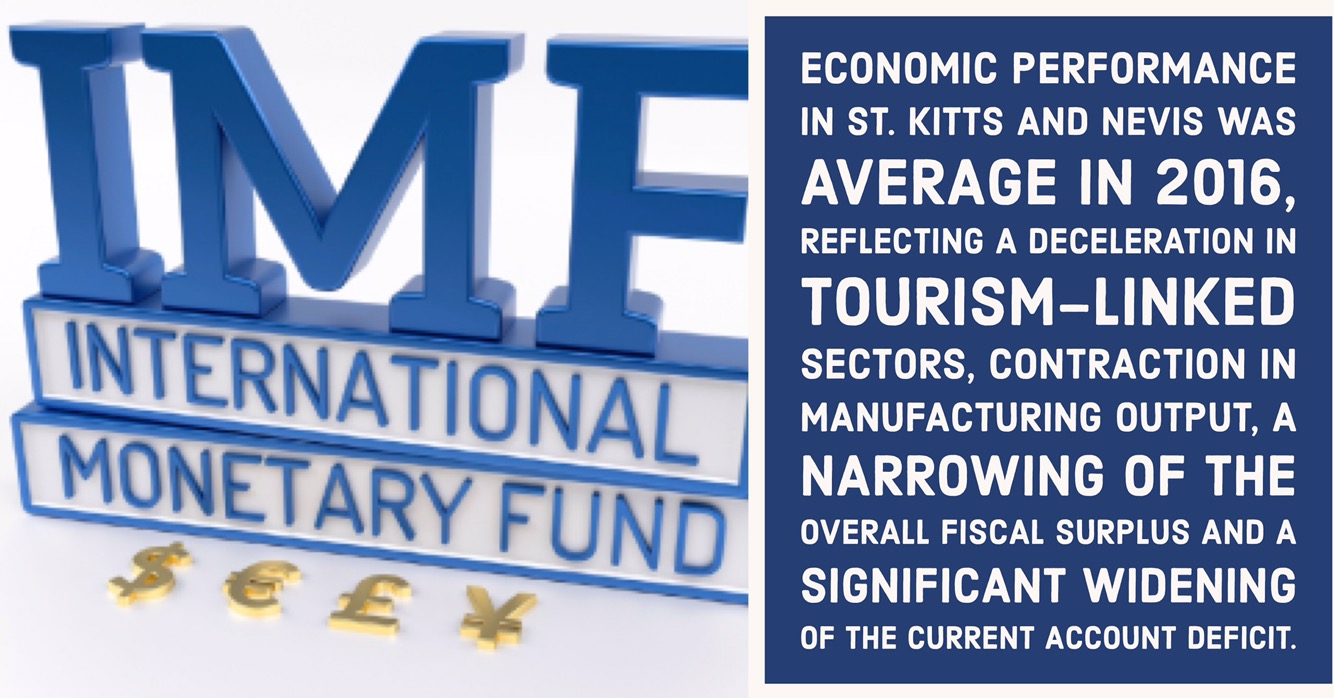By: E. Williams
WASHINGTON, DC, JULY 6TH 2017 – The Washington-based International Monetary Fund (IMF) said Wednesday that economic performance in St. Kitts and Nevis was average in 2016, reflecting a deceleration in tourism-linked sectors, contraction in manufacturing output, a narrowing of the overall fiscal surplus and a significant widening of the current account deficit.
In its Article IV consultation, the financial institution said although the average growth in the Eastern Caribbean Currency Union (ECCU) region was exceeded, a decrease in Citizenship-By-Investment (CBI) receipts was a key factor contributing to a narrowing of the overall fiscal surplus and a significant widening of the current account deficit.
It also said that consumer inflation was negative, reflecting the favourable tax environment and low international fuel prices, but end-year inflation turned positive as these effects started to subside.
The IMF said the Public debt strategy, put in train by the St. Kitts-Nevis Labour Party Administration, fell further and remains in line to reach the ECCU debt-to-GDP target in 2018, well ahead of ECCU peers.
It said that the banking sector remains stable, but faces risks, including those associated with the slow progress with the sale of land swapped for public debt, weak asset quality, and loss of Correspondent Banking Relationships (CBRs).
Growth is expected to average around 3 percent in the medium term under the current policies and conservative assumptions about future CBI flows.
The IMF is of the view that with the completion of the Labour Administration inititated projects, a slowdown in construction linked to lower CBI inflows is expected to be offset by public infrastructure investment and higher tourism growth as source market growth accelerates and new tourism facilities come on stream through 2019.
Inflation is projected to increase with the expected rise in fuel prices, remaining around 2 percent in the medium term. The current account deficit should remain large with CBI inflows tapering off. Key risks to the outlook include a sharper drop in CBI inflows, further delays in completing the sale of lands under the debt-land swap arrangement, loss of CBRs, and a stronger U.S. dollar. Stronger-than-expected CBI inflows from the ongoing reforms and continued oil-price weakness could surprise on the upside.









